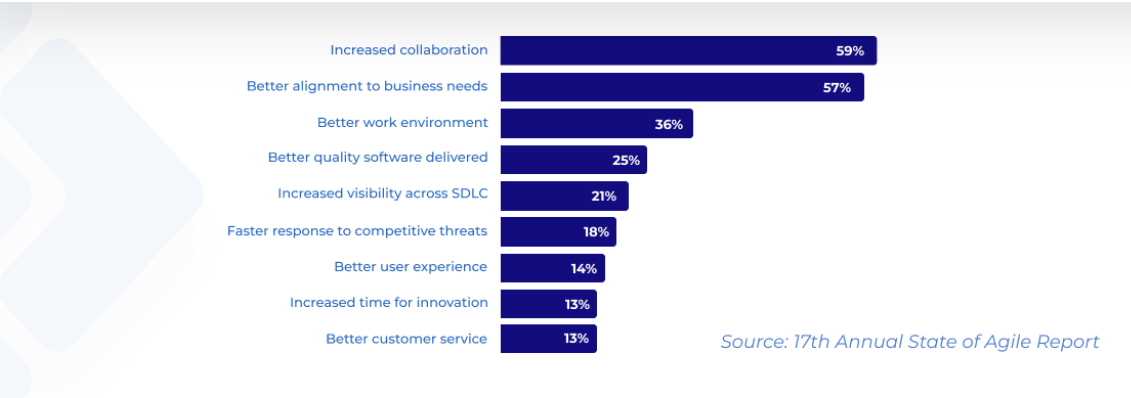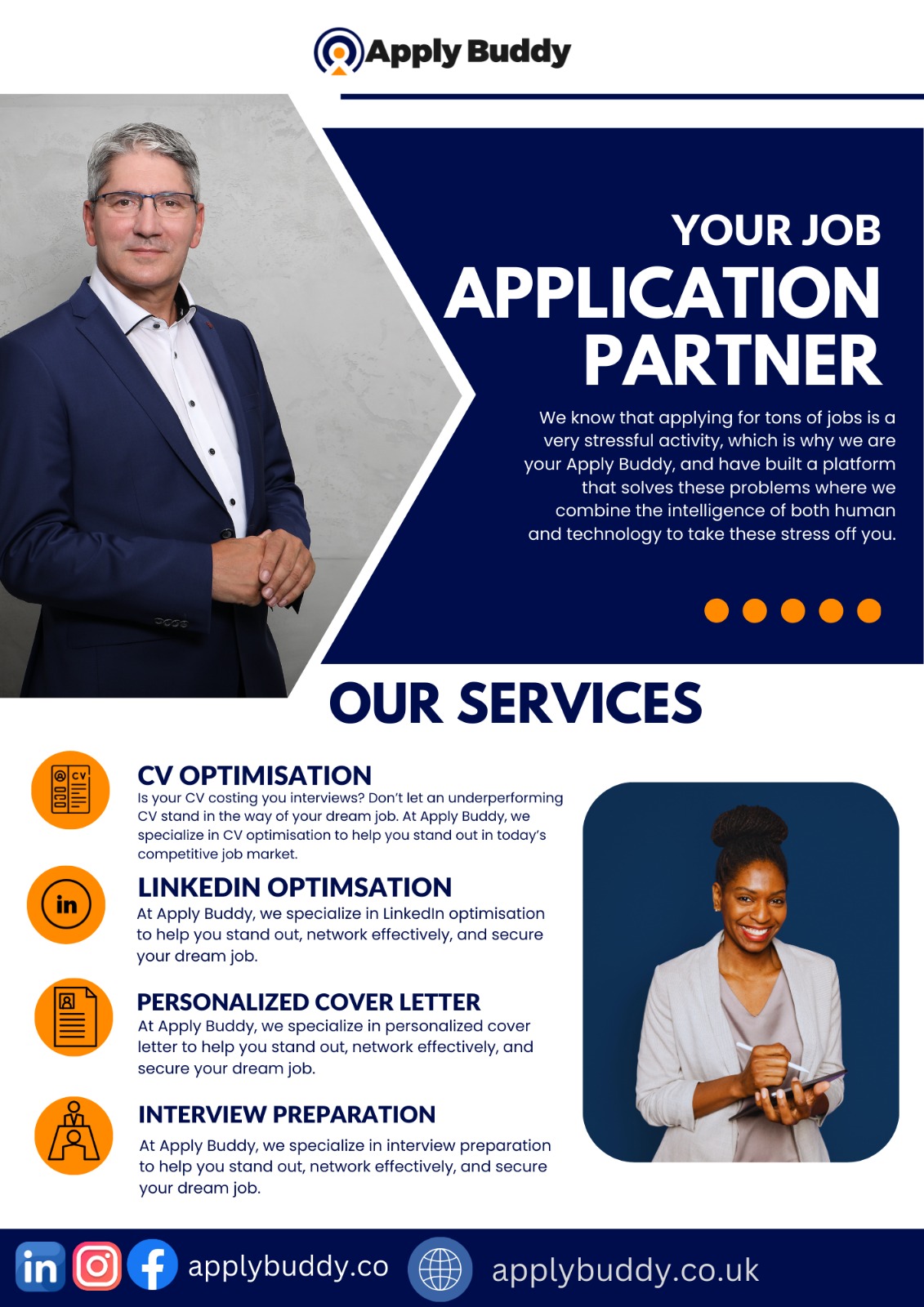Do we really need Business Analysts? Business analysis is one of the most crucial target roles that fuel and sustain multiple ventures today. This is how vital and indispensable it is. To answer business analyst agile interview questions expertly and tell recruiters about yourself, you need to understand how lucrative this role is and how to stand out among other applicants.
Do you know that your interview performance is essentially the determinant of your success in your job search and that arming yourself with tips for a successful interview works magic? For job seekers in the UK or any other country, you can understand that preparing for and acing your interview is a non-negotiable step in the job search process. Then, there is no room for slacking.
According to Market Research Future, the Business Analytics Market is projected to grow from USD 59.94 billion in 2025 to USD 124.93 billion by 2034. Find a visual representation of this stat below;

As a driven professional, this is the best time to prepare for success by reviewing business analyst agile interview questions and getting tips on answering them, which we will look at in this post.
When preparing for a business analyst interview, particularly one focusing on Agile methodologies, it’s essential to understand the questions you’ll likely face. Business analyst agile interview questions are designed to test your knowledge of Agile principles and your ability to apply them in real-world business analysis scenarios.
This guide will help you get familiar with agile business analysis interview questions, provide insights into preparing for agile business analyst interviews, and highlight the common agile interview questions for business analysts you should expect.
See Also:
Top 3 Business Analysis Skills You Must Have
Project Management Technical Interview Questions and Answers
Understanding Agile Interview Questions
Agile methodology is a must-have in our world today. The 17th annual state of Agile report clearly shows this below;

How possible is it to land the job if you do not have a solid understanding of agile interview questions, the purpose of agile questions in business analysis and the structure of agile interviews for business analysts? These will be the focal expose’ for this section.
First, what are Agile interview questions? Agile interview questions assess your understanding of Agile practices and ability to perform business analysis within Agile frameworks. Whether you’re asked to explain specific Agile principles and practices or discuss your experience with Agile ceremonies, these questions help interviewers determine your ability to work in Agile environments. But why are they so important in business analysis interviews?
Secondly, the Purpose of Agile Questions in Business Analysis is to bridge the gap between development teams and business stakeholders. Agile questions help interviewers evaluate how well they can facilitate communication, adapt to changing requirements, and manage expectations. Understanding the purpose of agile questions in business analysis allows you to demonstrate your agility in handling the technical and business aspects of projects.
Lastly, the Structure of Agile Interviews for Business Analysts blends behavioural and technical questions. You might be asked to explain how you handle evolving project requirements or how you’ve contributed to Agile teams in the past. By understanding the structure of agile interviews for business analysts, you’ll be better prepared to answer questions related to team dynamics, stakeholder engagement, and Agile best practices.
Key Concepts of Agile Methodology
Agile methodology is a hot topic, but a competent professional must understand the key concepts that make it stand out. Here are a few;
- Agile Principles and Practices: Before diving into agile business analysis interview questions, it’s crucial to be well-versed in the agile principles and practices that guide its frameworks. Concepts like iterative development, collaboration, and continuous improvement are central to Agile. Employers will likely ask questions to gauge how well you understand these principles and how you’ve applied them in previous roles.
- Overview of Agile Methodology: The overview of Agile methodology focuses on delivering value incrementally, ensuring feedback is integrated early and often in the project lifecycle. Business analysts play a crucial role in ensuring that the team’s output aligns with business goals, making it essential for you to demonstrate a clear understanding of how Agile frameworks work.
- Agile Frameworks for Business Analysis: Agile frameworks for business analysis—like Scrum, Kanban, and SAFe—are common in Agile-driven environments. Be prepared to answer questions about the frameworks you’ve worked with and how they’ve helped deliver successful outcomes in your business analysis projects.
How Agile Interview Questions Are Formulated
Interviewers create agile interview questions to assess your technical knowledge and ability to apply Agile concepts in real scenarios. The formulation of agile interview questions often involves real-world challenges you might face as a business analyst, ensuring that you can think critically and adapt quickly.
There are typically three types of agile questions for business analysts: technical, behavioural, and situational. Technical questions assess your knowledge of Agile practices and tools, while behavioural questions focus on how you handle specific situations within an Agile environment. Situational questions, meanwhile, present hypothetical scenarios and ask how you would respond. Some examples of agile interview questions include:
- “How do you prioritise tasks when working on an Agile team?”
- “Can you explain the difference between a product backlog and a sprint backlog?”
- “Describe a time when you had to manage conflicting stakeholder requirements.”
Common Agile Interview Questions for Business Analysts
Behavioural questions are designed to assess how you’ve applied Agile principles in your previous roles. You might encounter common agile interview questions for business analysts like:
- “Describe a time when you had to adapt to changing requirements mid-project.”
- “How do you ensure stakeholders remain aligned with the project goals?”
These frequently asked agile questions in business analysis, primarily behaviours related to agile for business analysts, aim to evaluate how you work within Agile teams and your adaptability to shifting priorities.
Questions about Agile Roles and Responsibilities
The responsibilities of a business analyst in agile environments differ slightly, and you need to prove that you possess a solid understanding of agile team dynamics in interviews. They bridge the gap between business needs and technical execution. Questions on behavioural questions about agile roles for business analysts might include:
- “How do you collaborate with product owners and Scrum Masters to ensure project success?”
- “What is your role in backlog refinement and sprint planning?”
Employers will also want to understand how well you grasp the responsibilities of a business analyst in Agile. You may be asked:
- “How do you ensure the team delivers features that align with business objectives?”
Demonstrating a solid understanding of your role in an Agile framework can help showcase your value as a business analyst.
Questions About Agile Practices and Tools
Questions about agile practices for business analysts are designed to evaluate how well you understand Agile processes such as sprint planning, daily stand-ups, and retrospectives. Be prepared to share your experiences and highlight how you’ve contributed to continuous improvement within Agile teams. Employers may also ask about the tools used in agile business analysis, such as Jira, Confluence, or Trello. These tools are essential for tracking progress, managing backlogs, and facilitating communication among team members.
You’ll likely face questions on handling agile projects—for instance, how you manage risks, respond to roadblocks, or keep stakeholders informed throughout the project lifecycle.
See Also:
How to Overcome Interview Anxiety and Project Confidence
Business Analyst Scenario-Based Interview Questions and Answers
How to Prepare for Agile Business Analyst Interviews
As Agile methodologies become increasingly common in project management, preparing for an Agile business analyst interview requires a unique approach. Understanding how to navigate the Agile environment and demonstrating your ability to work within it is vital to succeeding in the interview process. In this section, we’ll cover the essential steps for preparing for agile business analyst interviews, offering tips for success in agile interviews and providing practical strategies for answering agile questions.
Familiarising Yourself with Agile Terminology
One of the first steps in preparation is to become well-versed in agile terminology for business analysts. Agile interviews often assess not just your understanding of Agile principles but also your fluency in the language and processes of Agile. Familiarity with critical agile terms for interviews can help you communicate confidently and precisely during the interview.
Some agile vocabulary for business analysis interviews you should be familiar with include:
- Sprint: A set period during which specific work must be completed.
- User Story: A simple description of a feature from the end-user’s perspective.
- Product Backlog: A prioritised list of work for the development team.
- Scrum: An Agile framework for managing work that emphasises delivering value incrementally.
- Kanban: Another Agile methodology focusing on continuous delivery without overloading team members.
- Velocity: The amount of work a team can complete during a sprint.
These terms will show that you’re knowledgeable and can communicate effectively in an Agile team environment.
Practicing with Sample Questions
Practice is vital to interview success. By practising with sample agile interview questions for business analysts, you’ll become more comfortable responding to various scenarios and be better prepared to discuss your experience.
Here are some sample answers for agile interview questions you can practice with:
- “How do you handle changing requirements during a sprint?”
- Demonstrate your ability to maintain flexibility while ensuring the team remains aligned with business goals. Mention specific examples where you’ve managed change effectively.
- “Can you describe a time when you helped the development team overcome an obstacle in an Agile project?”
- Provide examples of how your proactive approach contributed to the project’s success. Highlight collaboration and problem-solving.
Preparing with examples for agile interviews will allow you to provide structured and concise answers during your actual interview. Focus on real-world examples highlighting your adaptability, problem-solving skills, and ability to work in cross-functional Agile teams.
Sample Business Analyst Agile Interview Questions and Answers
Here are a few sample business analysis agile interview questions and answers to prepare you for your job search success;
- Sample Question 1: How Do You Handle Changing Requirements in an Agile Project?
Managing changing requirements is a core part of working in Agile. A strong response would highlight how you maintain flexibility while ensuring project goals remain clear. You could say something like:
“In Agile, we expect change, and I collaborate with the development team and stakeholders to assess the impact of any new requirements. I prioritise changes based on business value and ensure that all team members are aligned before proceeding.”
- Sample Question 2: Can You Describe Your Experience with Agile Ceremonies?
Agile ceremonies such as daily stand-ups and sprint reviews are essential to the process. Here’s an example answer:
“I actively participate in all Agile ceremonies, from daily stand-ups to sprint planning and retrospectives. These ceremonies help maintain transparency and ensure that all team members are on the same page, which is critical for keeping the project on track.”
See Also: Transforming Your Business Analyst Resume to Get a Job
Conclusion
Preparing for an Agile business analyst interview requires a deep understanding of Agile methodologies, roles, and tools. By familiarising yourself with common agile interview questions for business analysts and practising with sample questions, you’ll be well-equipped to impress potential employers. Stay adaptable, articulate your experiences, and show you can thrive in an Agile environment.
ApplyBuddy: Your Sure Way to Get Interviews as a Professional

Are you struggling to secure interviews as a Business Analyst or in other professional roles? ApplyBuddy is your ultimate solution. Our platform helps streamline your job search by enhancing your CV, optimising your application strategy, and ensuring you are presented as a top candidate. Whether preparing for business analyst agile interviews or looking for your next big opportunity, ApplyBuddy is equipped to connect you with the right employers.
With tailored career advice, application tracking, and interview coaching, ApplyBuddy increases your chances of getting and answering interview calls. Don’t leave your career to chance—take control of your job search with ApplyBuddy, and let us help you land your next role confidently and effectively.
FAQs
1. What are agile interview questions for business analysts?
Agile interview questions for business analysts assess your knowledge of Agile methodologies, tools, and roles within an Agile team.
2. How do I prepare for an agile business analyst interview?
Preparation involves familiarising yourself with Agile concepts, practising with sample questions, and reviewing your experience in Agile environments.
3. What roles do business analysts play in agile teams?
Business analysts in Agile teams act as the bridge between stakeholders and developers, ensuring that the team delivers solutions that align with business goals.
4. How can I effectively answer agile questions in an interview?
Be clear and concise, and always relate your answers to real-world experiences, demonstrating your ability to work within Agile frameworks.
